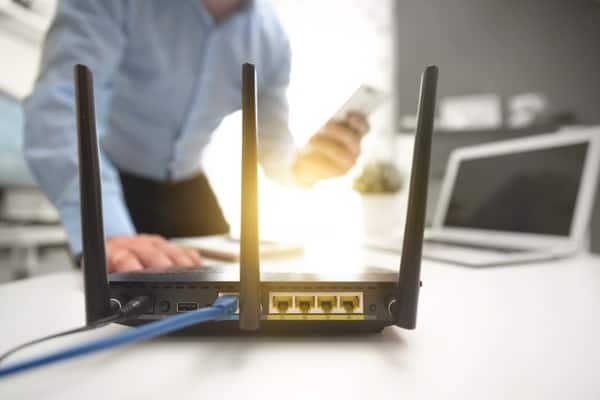
Since the digital revolution has come about, how we access education, do business, and enjoy entertainment in our free time, has been transformed.
It is more important than ever before that we secure our entry and security in the digital world, and one way of doing this is through our home network.
Building your home network considers various factors, like your budget, the number of people who are using the network, the speed you require, and even how physically safe the location is (after all, you might be asking this question “does weather affect satellite internet?” if you're setting up business somewhere a little more rural)!
The smallest home office type of set-up you can build is called a SOHO, or small office/home office. This is for self-employed individuals or businesses up to 10 people, but it is usually considered for companies with less than 5 employees.
Creating your own Local Area Network (LAN) consists of connecting your SOHO applications, and to the internet via a router!
Some SOHO applications – like your laptop, tablet, PC, smartphone, and printer – will be supported by wireless technology, and others will not.
If you’re looking for security, Ethernet is a great place to start.
Quick Navigation
Ethernet
The Ethernet is wired computer networking, the most widely used connectivity technology. Highly reliable and lower cost, it functions well at high speeds and can support a higher bandwidth than WiFi technology.
In addition to being one the oldest LAN technologies on the market today, Ethernet is going strong after 40 years! The best thing about building a home network that works for you is that you’re able to adapt to your specific wants and needs.
Therefore, you can use WiFi (wireless), wired, or a combination of both technologies. A mixed network, made up of wired and wireless devices being used together, is what most people have in their home network.
The next consideration is security and access to your information.
Who can access your LAN?
As your local area network will be accessible via single switches and all-purpose devices, you need to carefully think through the security of the overall system.
For safety purposes, your tech components should be out of the way as far as possible.
-
Wireless data
WiFi, perhaps even more than wired tech, is vulnerable to data security breaches.
Setting up your wireless network is not something everyone can do on their own; and if this is not installed securely or configured properly, your WiFi can be intercepted and an unwelcome user can gain access. It’s essential that you do some research on routers and how your choice of wireless tech impacts your entire WiFi security system, as you may want an I.T. professional to help with your network installation.
-
Wired security
Unfortunately, though wired technology is much more secure and reliable, there is still the likelihood that someone can break into the physical area where your network is stored, and gain access to your information by simply plugging into the private network.
This is why your cabling, appliances, and network infrastructure components should be hidden and discreetly stored whenever possible.
Because wired points can be taken advantage of, security should be protected by keeping components out of sight and not easily accessible.
You could also disconnect any Ethernet ports that aren’t being used.
Though wired and wireless technology has unique concerns, it’s best to always be cautious.
Tech proficient guests or even hackers can connect to your network, and protecting your company or personal data is the most important reason to consider firewall security vital.
-
Firewall installation
Regards protecting your data security needs, it is an excellent idea to install a firewall system into your home network. There are many firewall appliances on the market for you to consider, so you can read more here about how to select the best firewall for your home. If you have sensitive personal data or if you have multiple employees relying on the data security of your company, this is crucial.
There are also other methods of authenticating and authorizing access to your private network – and the importance of your data security cannot be overstated.
Network updating

Regular updating of your network needs to be done to ensure that your software and firmware are properly secured at all times.
With guests accessing your WiFi network, employees leaving the workplace, and opportunists constantly seeking a way in – security is of utmost importance.
As technology is improving all the time, there are constantly new features and functionalities that could assist in increasing the security, reliability, and performance of your home network.
You could even consider hiring an installation expert to highlight any security vulnerabilities, insecurities, or threats to your system.
This is known as network auditing.
If you are looking to create your own home network, many factors impact your decisions.
Consult with a professional to help you and do thorough research about the latest technologies!
